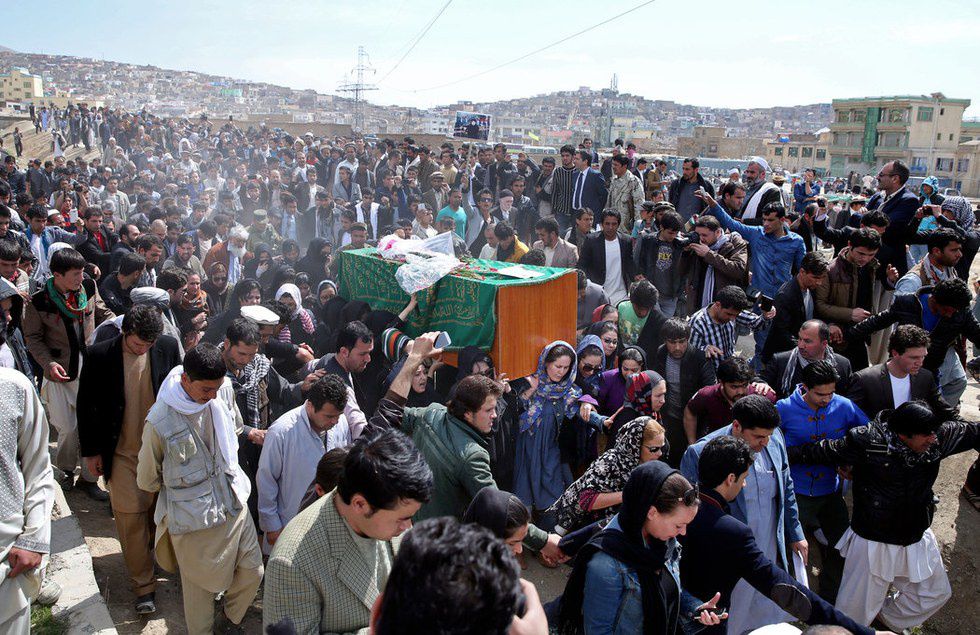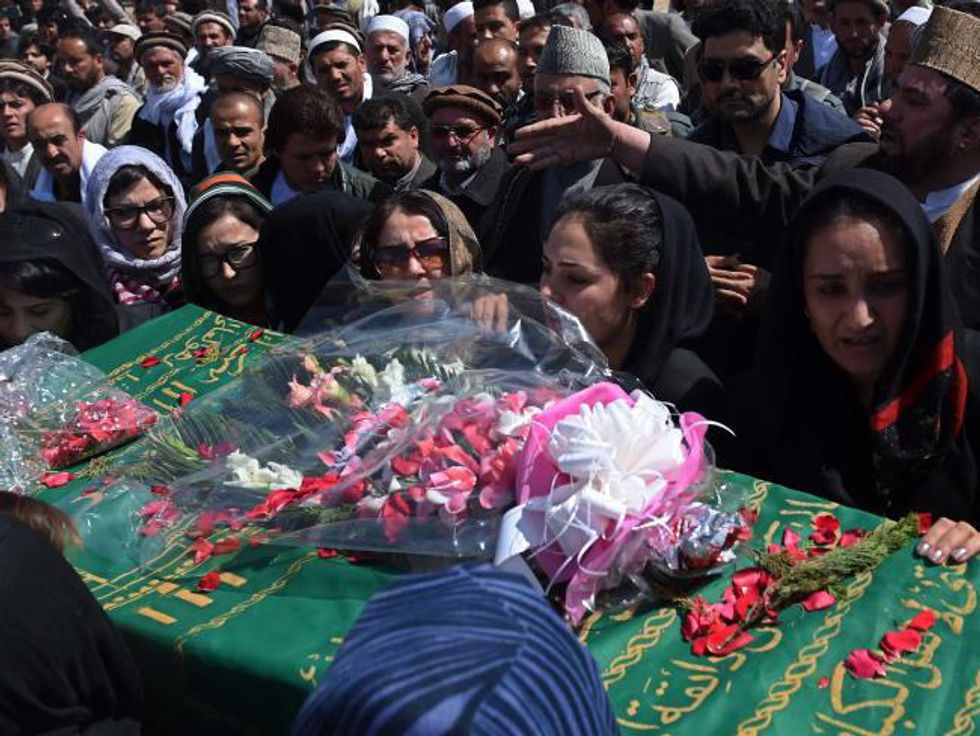On March 19, 2015, one of many innocent lives was brutally taken by barbarous and sadistic people in the name of religion. Farkhunda, a 27-year-old aspiring, Afghan woman, a student of Religious studies who had just got her degree and was about to start a teaching post, was accused of burning the Quran in a Muslim shrine. An accusation that shocked Afghans across the country. Here is how it all started:
It was a Wednesday, women’s day at the shrine, when men are not allowed. The women commiserate about their lives. They visit the fortuneteller to buy amulets to help them get pregnant, find a husband or have male children. Farkhunda was appalled by the way the women were manipulated and deceived to give more money. She went to the custodian and the fortuneteller and confronted them saying they were abusing the women into paying more money for them to make profit. She also pointed out that their actions weren't Islamic and had nothing to do with religion at all. An accusation that shocked that two Afghan men who weren't used to women confronting them nor pointing out their exploiting acts. They kicked her out by yelling at her and calling her names which made Farkhunda even more suspicious. She knew there was something amiss about the shrine and the fourtuneteller's business which led her to go to the police to investigate the case.
Farkhunda turned out to be right: There was something amiss at the shrine. Investigators from the police and the National Directorate of Security, the Afghan intelligence service, learned later that the fortuneteller and the custodian were trafficking in Viagra and condoms.
On March 19, the day of her death, Farkhunda went back to the shrine to lecture the women about the uselessness of these amulets and to enlighten them about how they had been manipulated. She may have also burned some of the amulets in front of them, according to a Ms. Farid a law professor at Kabul University. This is when the custodian took the burned amulets, went out of the mosque and shouted that "Farkhunda burnt the Quran." He obviously knew what he was doing since burning the Quran is considered in Afghanistan a crime that even its rumor can bring hundreds of outraging souls in the streets. (So religious, huh? Sure!)
A description of the events that followed was well written in an New York Times article by Alissa J. Rubin who said:
"It was about 4 o’clock, time for the afternoon prayer. The streets were full, and a crowd quickly gathered. Cellphone videos captured the first moments of the argument.
“Why did you burn it?” a man shouted.
As Farkhunda insisted she had not, another man shouted, “The Americans sent you.”
She responded, “Which Americans?”
He said, “Stop talking or I will punch your mouth.”
Mr. Naeem said that a police officer had tried to lead Farkhunda away, but that, mindful of Afghan custom as well as strict Islamic teachings, she had asked the officer to bring a policewoman. The crowd broke through. In cellphone recordings, more than one person can be heard shouting, “Kill her!” "Then she fell down on the ground and the people tried to beat her and pummel her, and the police would try to help her up, and then the people from the other side would push her down,” Mr. Naeem recalled. “They were like kids playing with a sack of flour on the floor.” In the videos, Farkhunda seems at first to be screaming in pain from the kicks, but then her body convulses under the blows, and soon, she stops moving at all. Even when the mob pulls her into the street and gets a car to run over her, and she is dragged 300 feet, the police standing by." After being run down by the car, Farkhunda lost her life, which apparently wasn't enough to the barbarians who set her corpse on fire.
Before she loses conscious, she responded to people's false accusations by saying:
"I am a Muslim, and Muslims do not burn the Quran!" However, they chose not to pay any attention to whatever she was saying.
On March 22 Farkhunda's funeral was held, a number of women, dressed in black, carried Farkhunda's coffin from an ambulance to a prayer ground and then to a graveyard. This was a marked departure from tradition, which holds that such funerals are typically only attended by men.
About the trials that followed Farkhunda's death, Rubin wrote: "The police, acting on the orders of the Interior Affairs Ministry, ultimately detained more than 50 people, 49 of whom (including 19 police officers) stood trial. Eight others were found guilty of major roles in Farkhunda’s murder and were each sentenced to 16 years in prison. The other 18 civilian defendants were found not guilty for lack of sufficient evidence. Of the police officers, eight had their cases thrown out, and 11 were given the lightest penalty possible: They were required to continue working in their assigned police districts for one year and to refrain from traveling. In reality, Afghans were divided about the event and what the punishments should be. Some believed that everyone in the crowd that beat Farkhunda and applauded should be punished; others thought only a few should be. Almost no one had faith in the justice system: In surveys, it is the least trusted Afghan institution. In the meantime, the legal team appointed by Mr. Ghani decided there had been so many flaws in the case that the only fair course was to ask the Supreme Court to order a retrial."
A year later, the world is forgetting about Farkhunda. A year later, no justice for Farkhunda. A year later, Afghan women feel more unsafe and insecure knowing that their justice system doesn't do them justice. A year later, some men in Afghanistan are still justifying what happened and making fun of Farkhunda's case.
It's been a year, Farkhunda. Her pure soul has been resting in peace for a year away from the world of injustice she was living in. Farkhunda died leaving behind many other Farkhundas who are fighting and will keep fighting for their rights in living.











 The minimum wage is not a living wage.
StableDiffusion
The minimum wage is not a living wage.
StableDiffusion
 influential nations
StableDiffusion
influential nations
StableDiffusion












